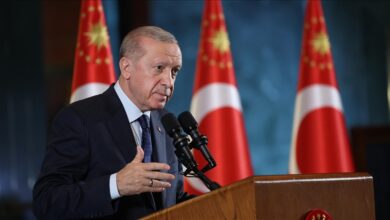
Anwar al-Bunni: Strenuous efforts by Syrian human rights organizations are pressing for the issuance of a European penal code similar to the Caesar Act
The Syrian lawyer and human rights defender, Anwar al-Bunni, revealed the efforts made by Syrian human rights organizations and Syrian jurists to unify efforts with the aim of issuing a European penal code, similar to the US “Caesar Act,” imposed by the European Union on the Assad regime.
Anwar Al-Bunni told Fresh Online: “Several meetings brought together those involved in the campaign, with active European politicians, during recent months, which included presenting the idea and discussing its merits.”
Al-Bunni added: “This meeting is new and it will be the most important among those meetings with the European Parliament on the third of next March.”
Al-Bunni declined to detail the Syrians participating in the campaign, explaining that “the draft law will require the approval of 27 European countries, and coordination is being made with all of them.”
He pointed out, “This task is difficult, given that many European countries still have relations with the Assad regime, or at least do not consider it an enemy, and therefore it is difficult to mobilize the European consensus for a law similar to the American Caesar.”
He stressed that the opposition’s efforts are continuing, by working with countries that adopt issues and human rights, especially Western European countries, such as Germany, Britain, France, the Netherlands, Belgium, Sweden, Norway and Austria, adding that these countries have lawsuits directed against the Assad regime before their judiciary, saying: “We have to work and we will do what is possible and by the best means.
Since 2011, the European Union has strengthened a package of sanctions against the Assad regime, which is one of the most important sanctions in the history of the Union, and includes the ban of all types of European commercial contacts with the Assad regime, especially in the field of oil and its products. The list of sanctions also included Bashar al-Assad, and the majority of individuals.
His family and relatives, in addition to many military and civilian officials suspected of being involved in the chemical attacks that killed dozens of civilians in separate areas of Syria.




